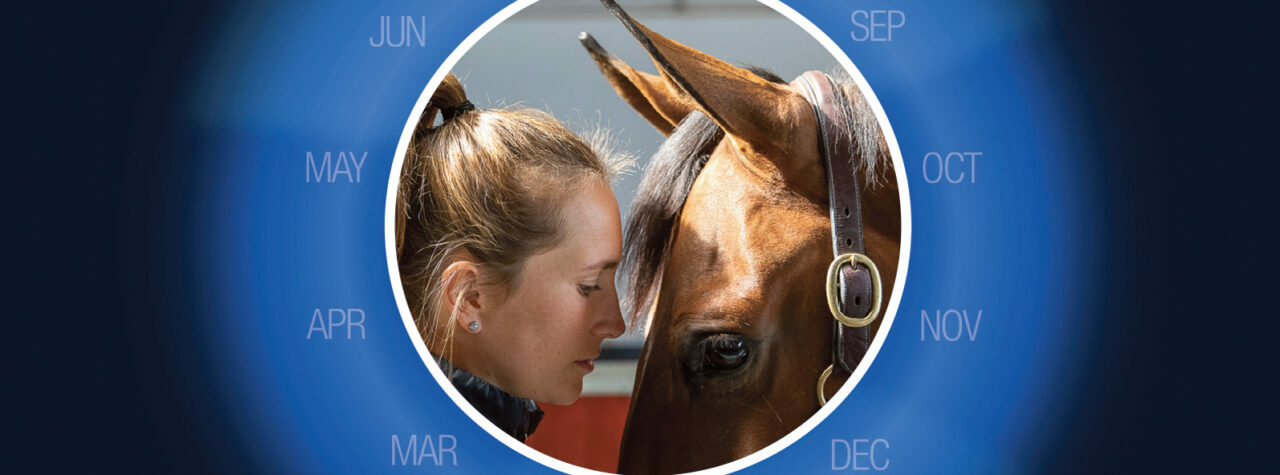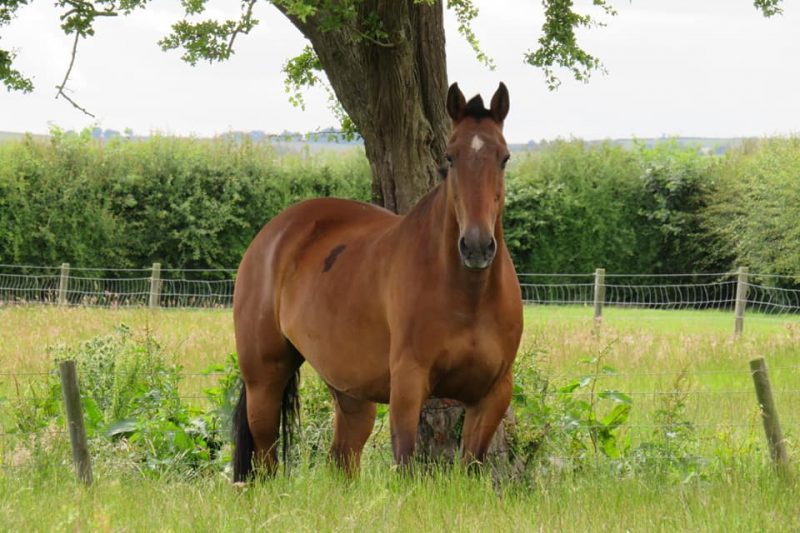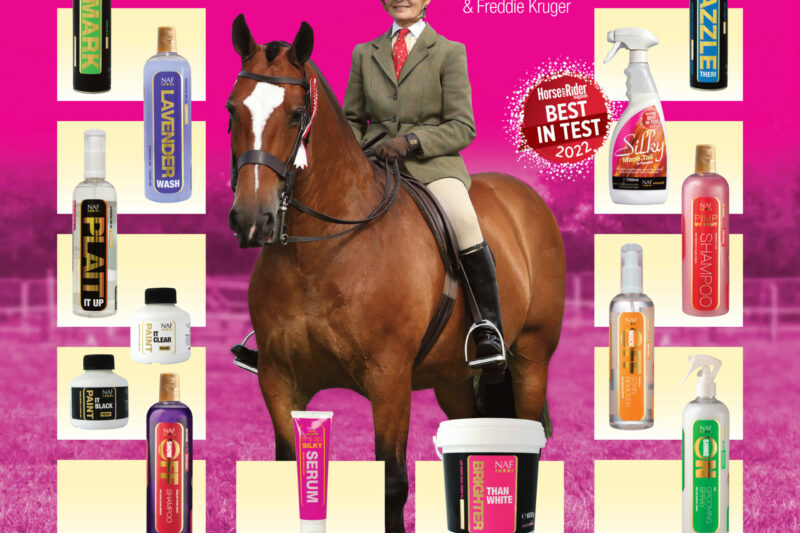Posted on 15 June 2023
by jess

Harness the Girl Power!
Maximising your mare’s comfort, focus and potential
Kate Hore RNutr(Animal) R.Anim.Technol (Cert). Head Nutritionist at NAF
Mares can be so rewarding, but also challenging, especially when you need them to
perform. Why are mares so tricky and how can we help them?
Firstly, remember mares are ‘entire’ animals, exactly as stallions, with the hormonal
challenges that brings. For example, in the wild, the boss of a herd is usually an older
female, known as the ‘alpha mare’ who can certainly assert her dominance despite not
being physically as strong as the stallion. That alpha position can be a fluid situation, with
different mares within the herd taking the lead on different issues, so there may be an alpha
for feeding, and a different alpha for when to move the herd.
Owning mares can be challenging, but with the lows come highs. Mares can be determined,
clever, natural leaders – making her a truly amazing competition partner! If you’re lucky
enough to own a mare it’s a case of working with her, rather than against, and that ‘alpha
mare’ mentality will help you both tackle whatever life throws at you. She will certainly take
on the geldings, and win, if she is given the opportunity to.
However now, as we come in to early Spring it can be a particularly challenging time. The
hormonal behaviour usually follows a pattern from March through to October, with this
Spring transition period – the change from the anoestrus season over winter, when they
typically don’t cycle, to the natural breeding season through the spring and summer months
– being particularly erratic.
For mares, there are two challenges, staying focused, and staying comfortable. Their
ovaries sit just behind and down from the saddle, and signs of discomfort are often
associated with that area. For example, the mare who swishes her tail, or is sensitive to
grooming her quarters may be uncomfortable, impacting her ability to engage her quarters
and bend correctly. For disciplines such as Dressage and Showjumping, where engagement
of the quarters is so important, this can be a particular challenge for both the mare and
rider. Seasonal discomfort can certainly contribute to her behaviour changes, but is not the
only factor. Behaviour changes can also be due to hormonal swings, and range from signs of
preparation for breeding, such as flirting, excessive urination and distraction from work; to
dioestrus signs where she would naturally reject the stallion with aggressive, dominant
behaviour. Therefore, working to improve both her comfort and balanced behaviour can
make a huge difference to performance throughout her seasons.
Unfortunately, mares’ seasons match, almost perfectly, with the competition season, as
they are stimulated by longer day light hours. Using a sympathetic, but proactive, response
is the best way forward and there are a number of ways you can support her.
Mar 23Retailer BlogNAF
Mare Management
Maintain a stable herd of companions as changes can alter a mare’s status, affecting
behaviour
Feed a high fibre, low concentrate diet, avoiding starchy cereals which exacerbate
unwanted behaviour
Maintain her in a healthy Body Condition Score (BCS), as excess weight can extend
breesing seasons, and dominant horses have higher BCS
Feed NAF Oestress daily
NAF Oestress provides a unique synergistic blend, for all aspects of mare’s seasons, not just
her outward behaviour. Chasteberry is included for calm focus, but on it’s own doesn’t get
to the root of the comfort issues. Therefore, natural antioxidants, magnesium, and targeted
herbs, such as Crampbark, are also included, for inclusive support of comfort alongside
nutrition for focus to perform to her best throughout the season.
With good management and targeted nutrition we can work with our mares to stay focused
and comfortable, allowing their natural strengths to win through!
NAF Oestress is available in either a palatable powder or fast-acting liquid.


